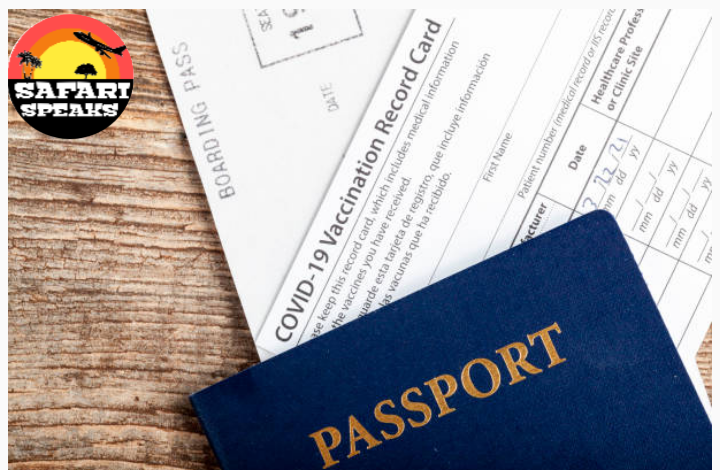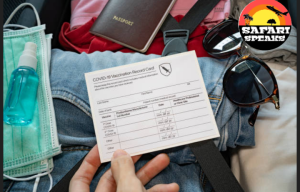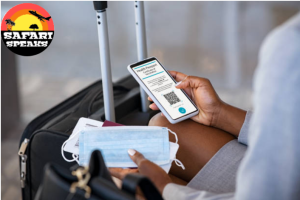Healthy Travel: Health Tips Every Travelers Should Watch Out For.

Healthy travel is one that every traveler should always watch out for because a healthy person is regarded as one who saves money twice. There is a joke that says the only thing you really need in order to enjoy travel is a strong travel.
We would also add that common sense is required. Certainly the most miserable experience imaginable is to get sick when one is far from home.
We have heard that one-third of all international travelers suffer from diarrhea on their trip, and half of those going to certain countries with poor sanitation. So what do others do right? Some people are blessed with a robust digestive system to begin with; others simply take great care to stay out of trouble.
Healthy Travel: 8 Easy Health Tip To Observe
1. Make a consultation with your doctor for about four to six weeks before your departure date. You will need a basic physical examination; a schedule of immunizations and an updating of any prescription you might require – enough to last for the trip.
2. Your physical examination should include routine blood tests, a review of your medical records, and necessary booster shots (tetanus, polio, yellow fever, COVID-19, etc.).
3. Have your physician write out your generic or scientific name of any drug prescribed so that foreign pharmacists would not be confused by brand names.
4. Your physician may also be able to prescribe medicines to protect you against overexposure to the sun, diarrhea and motion sickness.
5. Make sure you have copies of your prescription for contact lenses and glasses as well.
6. Any essential drugs and prescription should be carried on board the airplane with you, not checked in your luggage.
7. Older travelers in particular may wish to ask their doctor to fill out sheet on their medical background, including blood types, drug allergies, special conditions and any pertinent medical history. Have the physician include his or her address.
8. It is recommended to have a dental checkup, too. One of us once tried to explore Dublin while suffering from a toothache and it was a most unhappy day. Obtaining dental care in a foreign country is a risky business. Have your teeth cleaned and x-rayed and your fillings checked for secure fit.
Travel Wise: Necessary Immunizations For A Healthy Travel
Another healthy travel tips to put to mind is the aspect of making sure that you are immunized before making a move to any country of your choice so that any pandemic spread will not hit you once you reach a country already hit by a pandemic. Some immunizations may be required before you can visit some certain countries; others are not required but are strongly recommended to protect your health.

At the passport agency or Public Health agency, obtain the International Certificate of Vaccination often referred to as Yellow Card, on which your inoculations will be recorded. This is required before entering some countries and you will find it a valuable life-long record. Always keep it with your passport.
Some Basic Immunizations Before Traveling
1. Yellow Fever: Some countries require proof of yellow fever vaccination before visas are issued or entry is permitted. Yellow fever certificate is good for ten years but presently the shots has been made in such a way that it is for a lifetime.
It is recommended that you get this vaccination if you are going to any country that has yellow fever pandemic or that has had it once.
As at this writing, yellow fever shots are mandatory before going to less developed parts of South America, Africa and Asia.
2. Cholera: The risk of cholera for an American traveler is very low and the vaccine is considered relatively ineffective. Generally, if you avoid unsafe food and water, your chance of contracting cholera is extremely slight. A few countries still require proof of cholera vaccination.
The vaccine is administered twice, a week apart, and it is good for six months. If you are pregnant, you should not be vaccinated.
3. Typhoid: If you are traveling to Central America, South America or Asia and especially if you visit remote rural areas, a typhoid vaccination is strongly recommended but not really required.
Plan to get the first shot a month before departure. The vaccine is administered twice, four weeks apart, and is good for two years.
4. Gamma Globulin: This injection will help protect you against Hepatitis A and should be taken if you are going to areas with poor sanitation. It is most effective for three to six months. If you get a booster during your trip, make sure the hospital or clinic has excellent sanitary standards.
5. Malaria: There is no approved vaccine for malaria, as yet. the disease is carried by mosquitoes and it is present in more than 100 countries especially in the rural areas of Africa, Mexico, Central America, South America, the Middle East, Asia (including India and South east Asia) and Oceania.
If you travel to any of these areas, you will be at risk and you should protect yourself. Your doctor will prescribe a weekly dose of anti-malarial medication (usually chloroquine), starting at least two weeks before you enter malaria territory and ending six weeks after you return home.
In some areas of the world, the malaria parasite is resistant to chloroquine and you will need to take an additional medicine called Fansidar. Ask your doctor if you will need this as a substitute.
Symptoms of malaria include fever with chill and headache. Do not interpret this this with flu – demand medical attention as soon as possible. Malaria can be cured if discovered early.
6. Measles: Wherever you are going, it is wise to make sure you are immune to this serious disease. If you were born before 1957, you are probably naturally immune through having contracted it in childhood.
7. Tetanus: No matter where you are going, you should have the primary series (two shots, four weeks apart) if you were never vaccinated, and a booster shot every ten years.
8. Meningococcal: Call your state Department of Health to find out whether the areas you are visiting currently have current epidemics of this disease.
9. Polio: There are still some areas of the world (tropical regions and developing countries) where polio is a threat. Contact your state Department of Health.
10. COVID-19: This is a very essential vaccine that is very much compulsory for every person that have received the Covid-19 shots starting from the first dose and then the second one (booster) after two months of receiving the first dose/shot.

It is compulsory for anyone traveling to any part of the world especially to Asia and some part of Europe where the COVID-19 protocols is still existing. The use of nose masks is also very essential especially when entering public places.
Foods To Avoid In The Tropics
Enjoying the native cuisine and the local delicacies can be one of the greatest pleasures of traveling. If you are in an area where sanitation is poor, however, be very selective about what to eat. There are exceptions to most of the following tips; use them only as guidelines. If you learn to know your won constitution you will k now how well you can handle strange foods.
a. Raw Fruits: unless they can be peeled and you do the peeling. Stick to those fruits that have natural protections in their peels, such as bananas, pineapples and oranges. You will find that banana come in many varieties in tropical countries and are a true delicacy.
b. Raw Vegetables: especially lettuce and salads. Well cooked vegetables are usually unsafe.
c. Raw or rare meat or fish: especially on some games like antelopes and other unapproved bushes animals for hunting.
Eat well cooked foods that are still hot. Avoid anything that has been cooked and has stood for a while. A common warning is to avoid food purchased from street vendors. It might be very inviting and tasty. This is a very good rule of thumb, but consult other travelers you meet.
You might not want to miss the fresh juices of Mexico, the delicious boiled beef at stalls along the streets of Bolivia, or the famous night market, with food stalls, in Penang, Malaysia. Again, know your own metabolism.
If you do not tend to have digestive problems, try some samples; if you do, do not take a chance.




